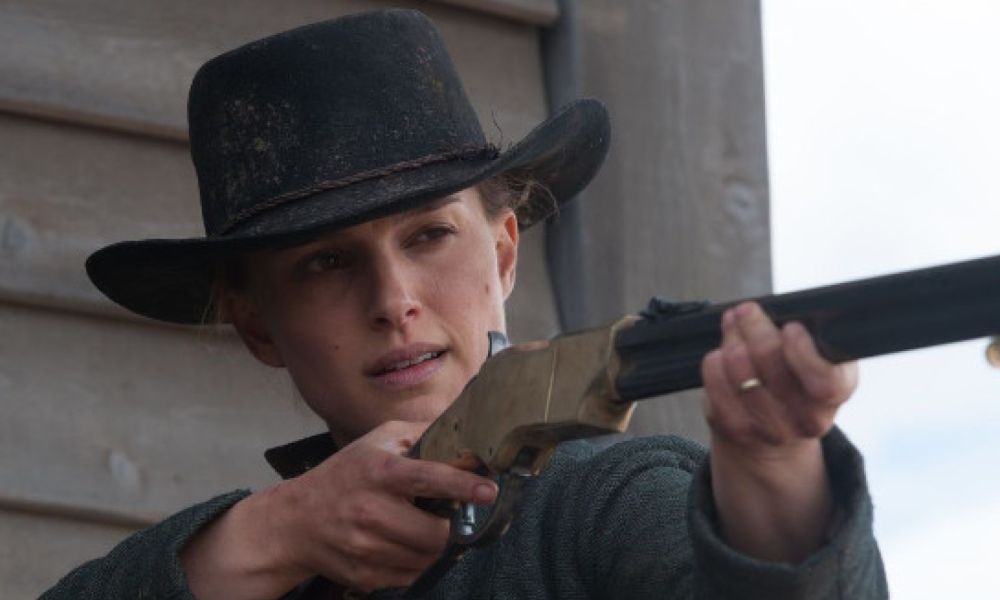 (2.5 / 5)
(2.5 / 5)
While the social timeliness of the Western may not be what it once was — even in its most revisionist form it seems a bit old hat — the genre that once defined America seems determined to at least die with its boots on.
Hardly the rootin’-tootin’ feminist revenge flick implied by its title, Brian Duffield’s script for Jane Got a Gun first appeared on the Black List back in 2011 (it now has three writers credited, including costar Joel Edgerton). The film is, however, a conventional affair in which relatively considered period drama is occasionally shattered by a sudden gunshot.
It all begins on the homestead when Bill Hammond (Noah Emmerich) hoves into view and promptly topples off his horse with three bullets in his back. His wife Jane (Natalie Portman) dutifully digs them out, leaves their daughter with a neighbor, and rides into town.
It’s here that Jane Got a Gun’s more generic qualities become apparent. The first building on main street is a rundown clapperboard church. Old timers are sawing wood for coffins a few lots down; a wench in a burlesque dress suns herself on the balcony of the local saloon.
Jane’s would-be savior comes in the form of Dan Frost (Edgerton), a surly-sensitive Civil War veteran. She needs his help to defend the injured Bill from black-hat baddie John Bishop (Ewan McGregor) and his gang of psycho hillbillies, but her and Dan’s shared history makes this problematic. Flashbacks casually unfold the relationships between all four, but it’s all too prosaic to make much of an impression. Still, mostly resigned to lying in bed, bleary-eyed and groaning, they at least permit Mr. Hammond a cool hero scene involving door kicking and twin pistols.
Mandy Walker’s cinematography is classically handsome, both crisp and muddy, picking out the yellows and browns of the bluffs and gullies, and the film’s score, courtesy of Lisa Gerrard and Marcello De Francisci, suitably stirring.
Where Jane Got A Gun is most interesting is in its suggestion that tragedy can strike anytime. It comes out of nowhere and leaves you shaken. Portman and Edgerton are competent in their roles — she brings a clear-eyed level-headedness, he a guarded vulnerability — but the film’s real, if somewhat minor, revelation is McGregor.
With his neat black mustache, slicked-back hair, and gleam in his eye, McGregor is almost unrecognizable in a villainous role that is both unshowy, but — like the gold banding on Bishop’s prize revolver — has a rewarding glimmer of ostentation about it.
The film works best on the whole, though, when Gavin O’Connor’s direction manages to strip away the polish. For instance, an abrupt switch to POV when Bill is rolled over in bed is fittingly clunky in implying the wounded man’s discomfort. The film’s finale, meanwhile, blows out the cobwebs (and more besides) and lets some much-needed light in
Neither Annie Get Your Gun nor Johnny Guitar, Jane Got A Gun falls neatly between The Salvation and Bone Tomahawk on the quality scale of recent Westerns. Unremarkable on the whole, but striking in its occasional suddenness; in this case the unreadiness is something.
